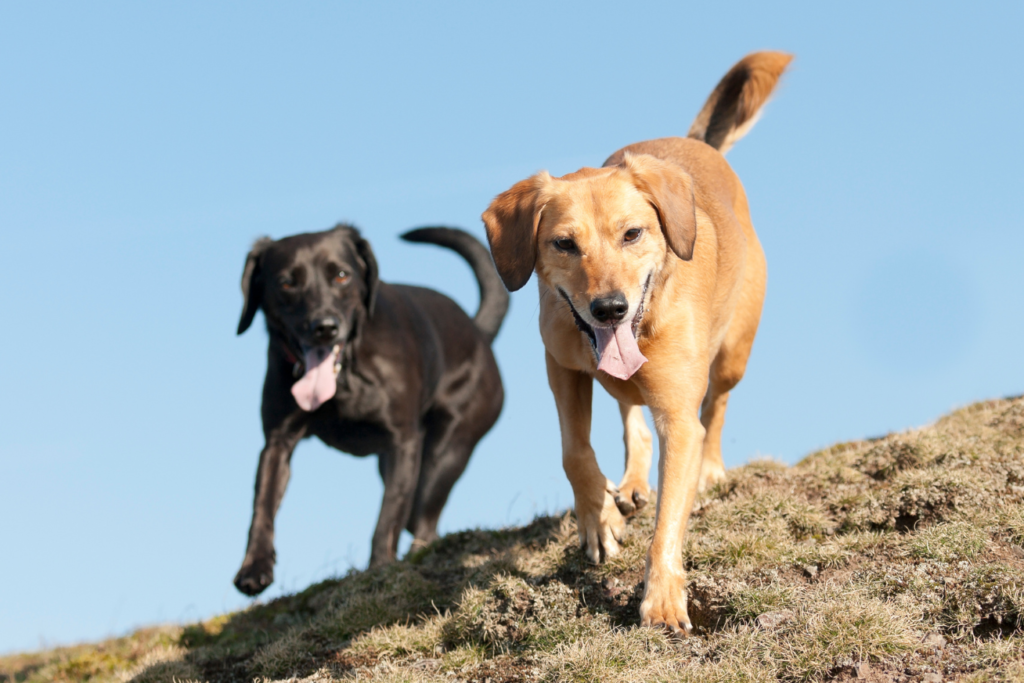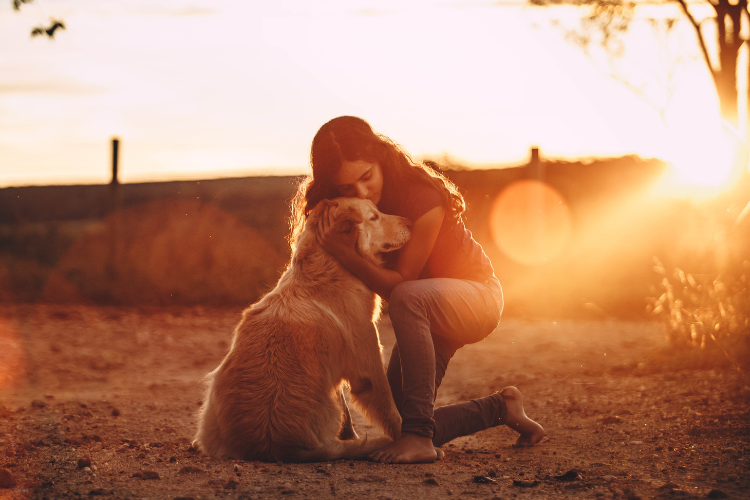These habits prove who’s actually raising happy, balanced dogs.

There’s a big difference between people who just own dogs and those who absolutely crush it at being dog parents. The gap isn’t about expensive food or fancy collars either—it’s in the everyday choices and mindset. Great dog owners do things others skip, often without even realizing it. If you’ve ever wondered what really sets them apart, these 12 rules reveal the habits behind the dogs you see walking around looking ridiculously happy and well-adjusted.
1. They read canine body language like a second language.

According to the American Veterinary Society of Animal Behavior, learning to interpret things like ear position, tail carriage, and subtle shifts in posture prevents misunderstandings and accidents. Great owners don’t just assume a wagging tail means joy—they notice when it’s stiff, slow, or paired with other signs of stress. This awareness helps them intervene before small issues become big behavioral problems. It’s a skill built over time, and it changes how owners respond in almost every situation.
2. Their dogs see a vet more than just for emergencies.

As stated by the American Animal Hospital Association, dogs that receive consistent preventive care live healthier, longer lives and avoid many chronic issues that sneak up unnoticed. Great dog owners make wellness exams a routine, not a panic button when something’s already wrong. It might not feel glamorous, but catching early signs of illness or discomfort spares pets unnecessary pain and owners expensive treatments later. It’s a quiet, ongoing commitment that speaks volumes about prioritizing health.
3. Training doesn’t stop after puppyhood.

Reported by the Association of Professional Dog Trainers, dogs benefit enormously from lifelong learning because it keeps their minds sharp and their behavior reliable. Great owners treat training as a way of life, whether it’s reinforcing recall in adulthood or teaching fun tricks that keep mental stimulation high. It’s not about strict obedience—it’s about building trust, improving communication, and preventing boredom-based misbehavior. These dogs often seem calmer because structure and learning are simply part of their everyday routine.
4. They let dogs sniff during walks without rushing.

Forcing a dog to heel constantly or rush through a walk can be stressful. Great owners understand that sniffing is a dog’s way of processing the world, almost like scrolling through social media for us. Allowing time for this natural behavior provides enrichment and reduces anxiety. It might make walks longer, but it also makes them more rewarding for the dog, which builds a better bond between human and canine.
5. Nutrition choices are based on more than flashy labels.

Great owners read ingredient lists instead of falling for the prettiest packaging or celebrity endorsements. They consider protein sources, filler content, and potential allergens. This effort pays off in coat health, digestion, and energy levels. Many take advice from reputable veterinarians or nutritionists rather than pet food marketing campaigns. Their dogs often reflect the benefits with better muscle tone, shinier fur, and fewer surprise vet visits due to diet-related issues.
6. Exercise happens rain or shine.

Skipping walks because the weather is bad isn’t an option for truly dedicated owners. They find ways to keep their dogs moving safely, whether it’s an indoor play session, a covered outdoor path, or just layering up and going for it. Consistent exercise prevents obesity, reduces destructive behavior, and strengthens the bond between dog and human. Dogs crave structure, and exercise is a big part of keeping them balanced and happy.
7. Boundaries in the home are consistent.

Great owners set household rules and stick to them, whether it’s no jumping on guests or keeping dogs off certain furniture. This consistency provides a sense of security because dogs thrive on predictable patterns. They know what’s expected and rarely have confusion about what’s “allowed.” It’s not about being harsh—it’s about creating a stable environment where everyone, including the dog, feels comfortable and safe.
8. Socialization is treated as an ongoing responsibility.

Exposing dogs to different environments, people, and other animals is not just for puppies. Great owners continue this exposure into adulthood to prevent reactivity and fear-based behaviors. Regular socialization trips to parks, pet-friendly stores, or controlled dog meetups help dogs adapt to new situations without stress. This keeps their confidence high and makes them easier to manage in unpredictable settings.
9. Mental stimulation is just as important as physical activity.

Bored dogs often create their own entertainment, which isn’t usually what humans appreciate. Great owners include puzzle feeders, scent games, and interactive play into daily routines. This keeps dogs from developing destructive habits and improves overall cognitive health. It also helps tire out energetic breeds that seem unstoppable physically but mellow out with proper mental engagement.
10. They plan for emergencies before they happen.

Great dog owners think ahead by having pet first-aid kits, knowing local emergency vet numbers, and often even taking pet CPR classes. Planning ahead means fewer moments of panic and faster care if something does go wrong. This level of preparedness shows a deeper commitment to their dog’s well-being, beyond the day-to-day basics of food and exercise.
11. Affection is balanced with respect for space.

Great owners know when their dogs want cuddles and when they need space. They respect signs like turning away or moving to a different spot, which prevents overstimulation and builds trust. This mutual understanding creates a calmer, more harmonious household where the dog feels secure and not pressured into interactions when it doesn’t want them.
12. Lifelong commitment isn’t negotiable.

A great dog owner doesn’t view pets as temporary or disposable. They commit through health changes, aging, and lifestyle shifts. Even when challenges like moving or having a baby arise, these owners make plans that keep the dog included and cared for. This kind of dedication shows through in the dog’s demeanor—they tend to be more relaxed and trusting because they know they’re truly home, no matter what life throws at the family.
